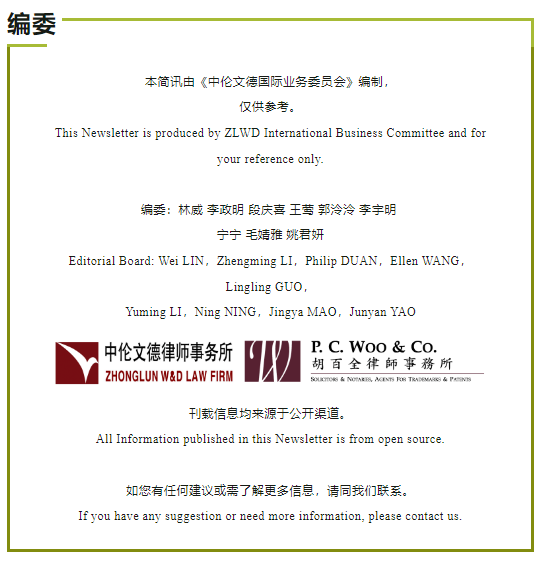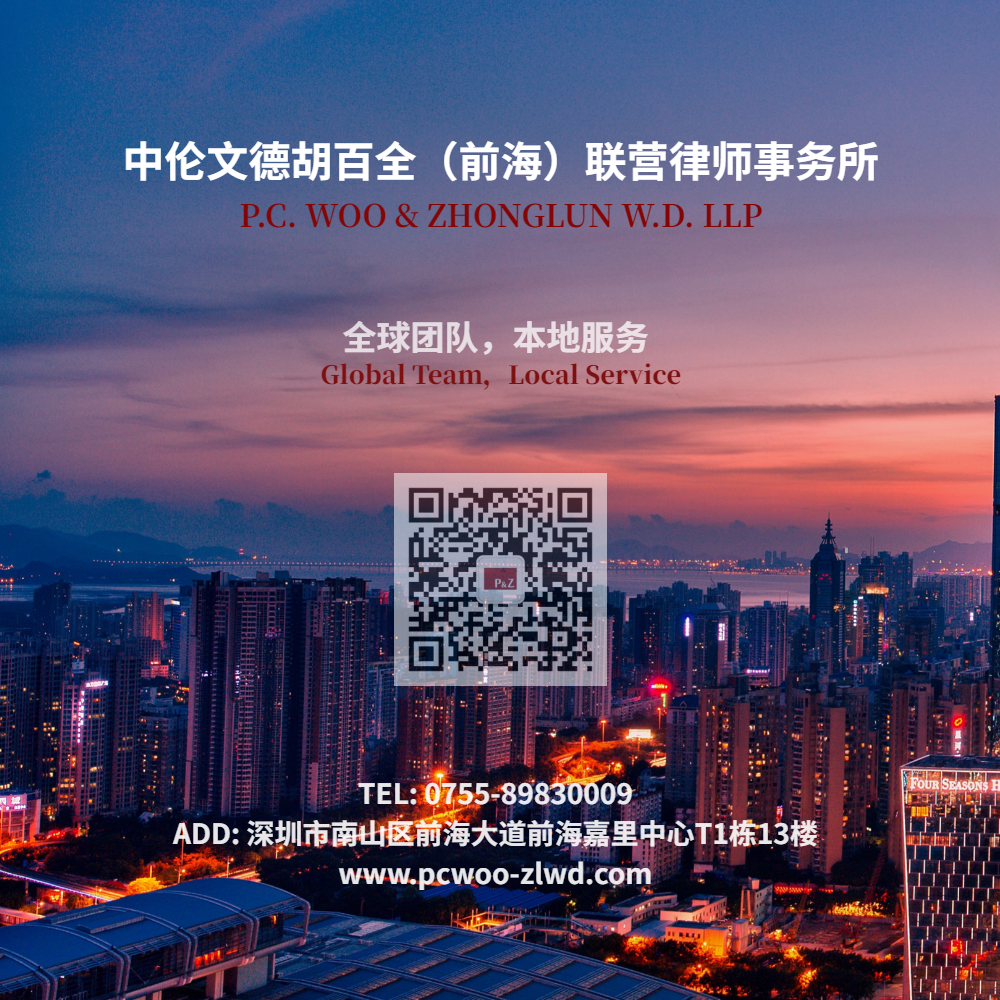
NEWS

NEWS

China Maritime Arbitration Commission Released "2023 Work Report"
On March 8, 2023, the China Maritime Arbitration Commission (hereafter referred to as "CMAC" ) released its "2023 Work Report"(hereafter referred to as the "Report"). The report pointed out that under the leadership of its 18th Committee, CMAC has achieved new progress. In the year 2023, CMAC received a total of 1,124 cases, representing an increase of 491.58% compared to the previous year. These cases included 39 foreign-related cases, 23 cases related to Hong Kong, Macao, and Taiwan, as well as 1,064 domestic cases, involving 32 countries and regions. The number of cases with claims exceeding one hundred million RMB has also seen an increase. The organization's provision of diversified dispute resolution services has been recognized by society, covering disputes in emerging areas such as marine engineering, photovoltaic equipment, and the transfer of ship equity.
In order to ensure the professional development of arbitration standards, CMAC has issued the "Case Handler Guidelines" and "Arbitral Tribunal Secretary Guidelines", enhancing service standards. It has also released documents such as the "Achievements and Prospects of the Implementation of Arbitration Rules for One Year", aiming to improve management transparency. Furthermore, CMAC has strengthened cooperation with relevant institutions and participated in the Supreme People's Court's construction of an "all-in-one" platform for information technology.
CMAC has also promoted the improvement of the arbitration service network. Through the establishment of the Maritime Silk Road Arbitration Center and the Greater Bay Area Arbitration Center, it has strengthened the training of arbitrators and education on professional ethics. In addition, CMAC has hosted and participated in numerous domestic and international professional seminars, enhancing exchanges and cooperation within the industry.
In terms of international exchange and cooperation, CMAC has received delegations from multiple countries and made visits to countries including Russia, Malaysia, Singapore, and the Hong Kong and Macao Special Administrative Regions. It has signed friendly cooperation agreements and become an observer to the United Nations Commission on International Trade Law (UNCITRAL). Meanwhile, CMAC has actively participated in public legal services and the training of foreign-related talents, contributing to the development of international shipping trade.
Supreme People's Court Released Typical Cases of Judicial Review on Arbitration
On January 16, 2024, the Supreme People's Court announced ten typical cases of judicial review on arbitration, covering various types and issues, including applications for recognition and enforcement of foreign and Hong Kong arbitration awards, applications for setting aside arbitration awards, and confirmation of the validity of arbitration agreements. The cases involve areas such as sports arbitration, financial arbitration, and touch upon multiple aspects such as the effectiveness of arbitration clauses, arbitrators' disclosure obligations, and arbitration procedures.
These cases reflect the court's supportive attitude towards the development of international commercial arbitration, such as the lawful recognition and enforcement of foreign arbitration awards, and the recognition and enforcement of Hong Kong arbitration awards in accordance with the "Arrangement Concerning Mutual Enforcement of Arbitral Awards between the MainIand and the Hong Kong Special Administrative Region" issued by the Supreme People's Court. They also clarify the standards for reviewing cutting-edge and difficult issues, such as defining the scope of jurisdiction of arbitration committees within sports associations, respecting the parties' autonomy of intention, strictly limiting the applicants for setting aside awards to "parties," and the criteria for judgment in terms of public order and good morals.
Furthermore, these cases emphasize the importance of strengthening arbitration supervision in accordance with the law to ensure the fairness of arbitration proceedings. They remind arbitration institutions to pay attention to the effective signing of arbitration clauses to safeguard the enforceability of awards. By releasing these typical cases, the Supreme People's Court aims to unify the standards of judicial review on arbitration across the country, regulate the judicial review power on arbitration, improve the quality and efficiency of review, and also guide arbitration institutions to handle cases in accordance with the law, thereby promoting the enhancement of China's arbitration credibility and influence.
Intermediate People's Court of Guangzhou, Guangdong Province:
Arbitration Clause Referred from the Principal Contract is Effective to the Parties of the Subsidiary Contract
Legal Basis:
"The Arbitration Law of the People's Republic of China"
Article 16
An arbitration agreement shall include the arbitration clauses provided in the contract and any other written form of agreement concluded before or after the disputes providing for submission to arbitration.
The following contents shall be included in an arbitration agreement:
(1) the expression of the parties' wish to submit to arbitration;
(2) the matters to be arbitrated;
and (3) the Arbitration Commission selected by the parties.
Case Description:
On December 24, 2020, Guangzhou Guanhe Biotechnology Co., Ltd. and Bank of China Limited Guangzhou Tianhe Branch (hereinafter referred to as "Bank of China Tianhe Branch") signed a "Working Capital Loan Agreement" (hereinafter referred to as the "Loan Agreement"), which stipulated in Article 15: After the effective date of this contract, all disputes arising from or in connection with the conclusion or performance of this contract shall be settled through negotiation. In case of failure to reach an agreement through negotiation, either party may choose one of the following methods for resolution: 1. Arbitration. Submitting to China Guangzhou Arbitration Commission for arbitration, the arbitration shall be conducted in Guangzhou, China (arbitration venue) in accordance with the effective arbitration rules of the Commission at the time of arbitration application. The arbitration award shall be final and binding on all parties.
Mr.Gan, as one of the guarantors, signed a "Maximum Amount Guarantee Agreement" (hereinafter referred to as the "Guarantee Agreement"), which stipulated in Article 14: Any dispute or controversy arising from the performance of this contract may be settled through negotiation between the parties. In case of failure to reach an agreement through negotiation, both parties agree to adopt the same dispute resolution method as stipulated in the principal contract.
On January 15, 2024, Mr.Gan applied to the Intermediate People's Court of Guangzhou (hereinafter referred to as the "Court") to confirm the invalidity of the arbitration clause in Article 14 of the Guarantee Agreement. The reason was that there was no mention of arbitration or other methods in Article 14 of the Guarantee Agreement, and since the guarantor did not need to sign and confirm the principal contract, i.e., the Loan Agreement, and Bank of China Tianhe Branch did not provide any explanation on the content of the contract, Mr.Gan was not aware of the arbitration clause in the Guarantee Agreement.
The Bank of China Tianhe Branch argued that the Guarantee Agreement embodies the true intentions of both parties, and the arbitration agreement is valid and complies with legal requirements.
Court’s View:
The Court held that this case involved the confirmation of the validity of the arbitration agreement. According to the relevant provisions of the Arbitration Law of the People's Republic of China, a valid arbitration agreement should include the expression of intent to arbitrate, the matters to be arbitrated, and the designated arbitration commission. The arbitration clause in the Loan Agreement has a clear expression of intent to arbitrate and matters to be arbitrated, and it designates the arbitration commission. There are no circumstances of invalidity as prescribed by law, so it should be considered valid. The Guarantee Agreement represents Mr.Gan's true intention, which clearly stipulates the connection with the principal contract, including the dispute resolution mechanism. Therefore, the arbitration clause in the principal contract is also binding on Mr.Gan.
The Court also pointed out that Mr.Gan, as a person with full capacity for civil conduct, signed a guarantee contract involving a large amount of debt, and should carefully consider the terms of the contract. Mr.Gan's claim that the arbitration clause is invalid due to failure to notice the arbitration clause and the bank's failure to explain lacks factual basis and legal support. According to Article 16 of the Arbitration Law of the People's Republic of China, the Intermediate People's Court of Guangzhou, Guangdong Province, ruled to reject Mr.Gan's application to confirm the invalidity of the arbitration clause in the Maximum Amount Guarantee Agreement.
High Court of Hong Kong:
Refusal to Enforce American Arbitration Association ICDR Award for Lack of Reasoning Violating Public Policy
Case Description:
Company A (hereinafter referred to as the "Applicant") is a company specializing in extracurricular training business under a chain brand in Maryland, USA. In 1994 and 1999, Shareholder C of Company B, acting on behalf of Company B, signed three agreements with Company A to establish educational centers at multiple locations in Hong Kong, with D responsible for operating the educational centers (Company B, C, and D collectively referred to as the "Respondents"). On February 1, 2020, C and D closed all educational centers and established new educational centers using the original premises through another company. On February 25, 2022, Company B notified Company A of the termination of the agreements. Subsequently, the Applicant initiated arbitration with the International Centre for Dispute Resolution (ICDR) under the American Arbitration Association, seeking payment of the license fee from the Respondents for the period from February 1, 2020, to the effective date of termination of the agreements on March 31, 2022, and a prohibition on the Respondents engaging in the education business in Hong Kong for two years from March 31, 2022. On August 25, 2022, the sole arbitrator ruled in favor of the Applicant on all claims (hereinafter referred to as the "Arbitration Award"). In May 2023, upon the Applicant's application, the High Court of Hong Kong (hereinafter referred to as the "Court") granted an order to enforce the Arbitration Award (hereinafter referred to as the "Enforcement Order").
In June 2023, the Respondents applied to the Court to set aside the Enforcement Order. They argued that the Arbitration Award merely made findings and conclusions without any analysis of the issues of guarantee, non-compete Covenant, and breach issues, and that enforcing the award would contravene public policy in Hong Kong.
Court’s View:
During the trial of this case, the Court focused on whether the Arbitration Award had sufficient reasoning to support its decision. The Court found that the arbitrator did not provide sufficient reasoning when determining key disputed issues, such as the applicable law for non-compete Covenant, the effective termination date of the agreements, and the enforceability or reasonableness of the non-compete Covenant. For example, the arbitrator failed to explain why the agreements were deemed to be governed by Maryland law, did not reason on the reasonableness of the time and territory of the non-compete, and did not explain why the Applicant's viewpoint on the termination date of the agreements was adopted. The Court considered that such lack of transparency and reasoning undermined the structural integrity and due process of the arbitration proceedings, violating provisions of the arbitration rules. Therefore, enforcing the award would violate public policy.
In conclusion, considering the serious deficiencies of the Arbitration Award in addressing key disputed issues and its violation of due process, the High Court of Hong Kong ruled to refuse enforcement of the Arbitration Award.


